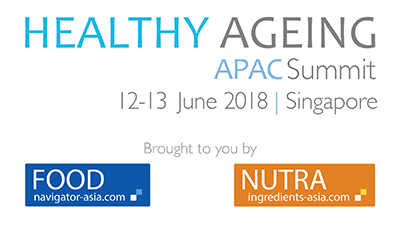The speciality food ingredients and solutions firm expanded its Shanghai lab in a new location — within Shanghai’s Caohejing Hi-Tech Development Zone — to better work with customers on lowering sugar, fat and calories in food and beverages, as well as to add fibre, in response to growing consumer demand in Greater China and the region.
“China is the largest and most dynamic food market in the world, serving a domestic population of 1.4 billion whose needs and preferences are constantly evolving,” said Harry Boot, general manager and senior vice-president of Asia Pacific, Speciality Food Ingredients at Tate & Lyle.
“By doubling the size of our food application laboratory in Shanghai, we will be able to partner more closely with food and beverage manufacturers and continue to grow our business in the Chinese market,” he said.
Investing to address Asian issues
Tate & Lyle’s Shanghai expansion follows the expansion of its polydextrose soluble fibre facility in Nantong, China, and the recent doubling of its Singapore food application lab as well.
“We have been investing very heavily in this part of the world,” said Boot.
Boot said that a key strategic priority for Tate & Lyle is growing sales of its Speciality Food Ingredients, particularly in the Asia Pacific and Latin America markets.
“By 2020 we want 30% of our operating profits coming out of these emerging markets,” he said.
Anna Taylor, corporate public relations manager, said, “We are making good progress. In Asia-Pacific, the high demand for our speciality food ingredients, such as our sweeteners, soluble fibres and texturants, has seen sales triple since 2011.”
In terms of specific countries, Boot said he is, together with the support of Singapore’s Economic Development Board (EDB), further looking at another phase of expansions in Singapore.
“We are very much focused on the fight against diabetes,” he said.
He said Singapore’s Minister of State Chee Hong Tat had enquired how Tate & Lyle could accelerate the solutions it can provide for these issues, into the marketplace.
“When industry and governments work together, it’s incredible how quickly things can go,” said Boot.
Similarly, he said that there are over 100 million diabetics in China, while sugar and calorie reduction, digestive health, fibre intake and clean label are top of mind for manufacturers region-wide.
“The majority of food companies we’re working with are all trying to find solutions to those key trends,” he said.
Beyond that, Boot said some of the countries’ new legislation, such as sugar taxes also brings great opportunity for the company.
“We’ve got the largest portfolio of sweeteners in the industry. A lot of customers from the beverage sector are coming to us, especially in Philippines and Thailand,” he said.
“We have a number of examples where we reduced the amount of sugar by 50% to 60%, especially in energy drinks. This also helps companies reduce the amount of tax they need to pay.
“It is a great opportunity to showcase our capabilities, and to help the industry resolve some of the issues.”
Serving Asian preferences
The expanded Shanghai lab and its pilot-scale capabilities enable customers to design, trial and benchmark different recipe formulations across a range of categories including dairy, beverage, bakery, and soups, sauces and dressings.
Other capabilities include ultra-high temperature processing (UHT) used for sterilisation — particularly in the use for dairy products — to analysis in the new sensory lab, where consumers and professionally-trained tasting panels can trial formulations before manufacturers launch them in the market.
Boot said that Tate & Lyle was working with the top dairy companies in China and its new application lab has the equipment to mimic their production facilities.
He said one out of three yoghurt products in China’s marketplace has Tate & Lyle products in them.
According to Boot, convenience and price has always been important to Chinese consumers, but increasingly they want healthier options, which provide greater nutrition or support weight management. There has also been an increasing demanding for cleaner labels.
“People are more and more becoming aware of what they put into their bodies,” he said.
“Ten years ago, walking around a supermarket in China, people weren’t even looking at the labels. Now everyone’s looking at the labels,” he added.
Aside from China and Singapore, Tate & Lyle has a network of application laboratories and sales and technical service resources in Australia, India, Indonesia, Japan, New Zealand, Philippines, South Korea, Taiwan, Thailand and Vietnam.
Globally, Tate & Lyle has achieved £2.8bn turnover in the fiscal year ending 31 March 2017. According to Boot, turnover in China has tripled since 2011.
The company said it has also tripled the size of its team in Asia-Pacific since 2011, but declined to state the number of its employees.

Healthy Ageing APAC Summit 2018: Our next event will assess how the food and nutrition industry can meet the needs of APAC’s rapidly-ageing populations of today and tomorrow. The event, in Singapore on June 12 and 13, will bring together policymakers, academics and industry experts from the likes of Nestle, Blackmores, Swisse and Japanese ‘engay’ food pioneers Nutri co. Find out more here
